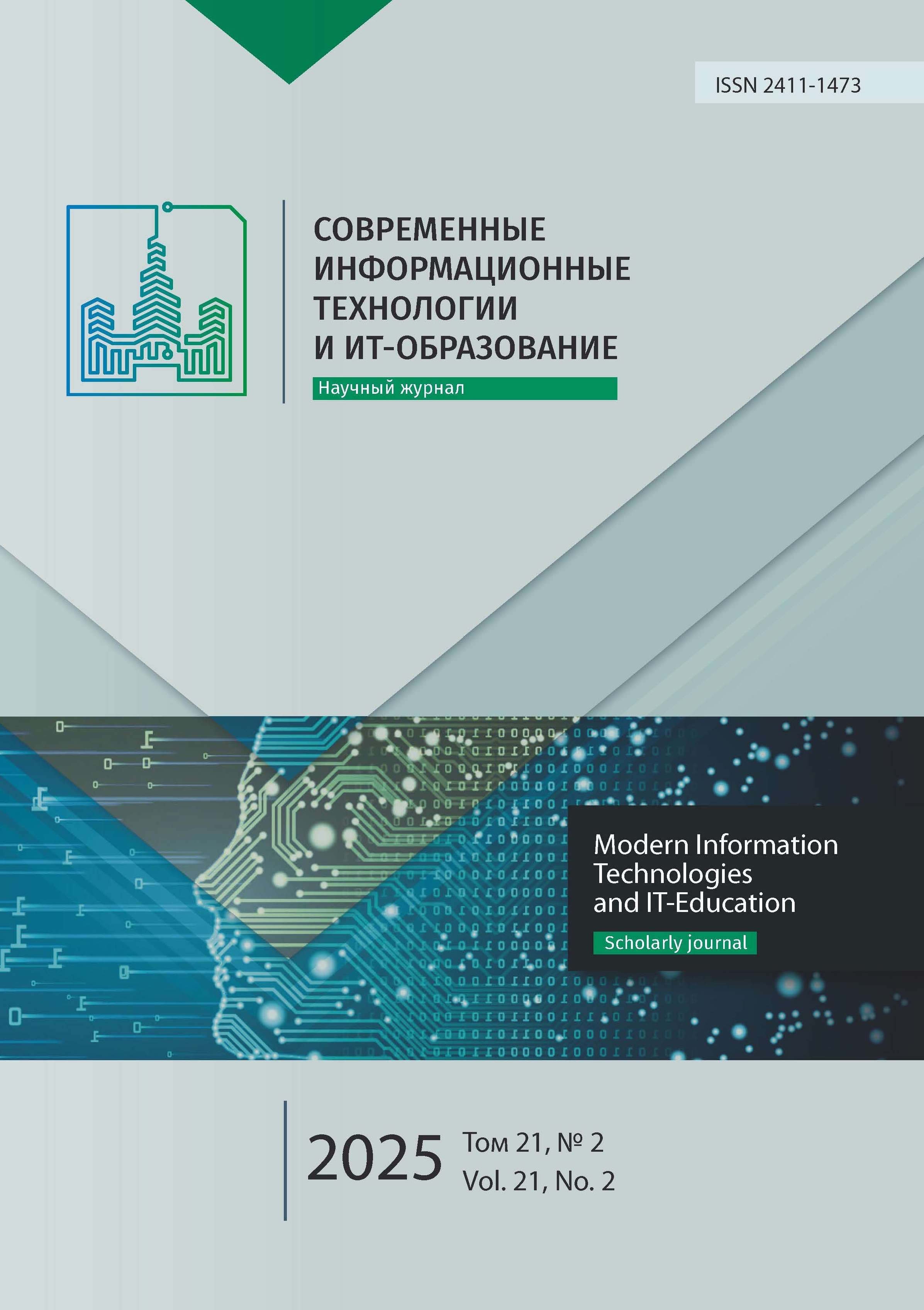The methodology of applying the anthology of Olympiad mathematical problems with non-standard elements
Abstract
This paper presents a methodology for generating mathematical problems at the olympiads level that include non-standard elements (heuristic techniques, interdisciplinary and game-based components, elements of uncertainty, etc.). The relevance of this work lies in the need to foster students’ creative and analytical skills and to increase the effectiveness of training for competitions and olympiads. The authors review current approaches to problem generation, including template-based methods and neural network solutions, and highlight their limitations, particularly the insufficient consideration of knowledge structures and the systematic integration of "non-standardness". To address these challenges, an ontological model is proposed that describes not only the topic, difficulty level, and solution method but also the types of non-standard elements in a problem statement. Based on this model, a rule-driven generation algorithm has been developed. The system creates tasks considering the learner’s profile, the correctness of the problem statement, and the required level of difficulty. The methodology involves collaboration between an expert, who defines parameters (key skills, desired elements, difficulty level), and an AI module, which combines ontological concepts and verifies logical consistency. The prospects for expanding the model include covering additional areas of mathematics and generating not only problem statements but also step-by-step solutions. The authors emphasize that the integration of ontological representation and AI makes it possible to go beyond standard exercises, stimulate creative thinking, and significantly improve personalized olympiads preparation.

This work is licensed under a Creative Commons Attribution 4.0 International License.
Publication policy of the journal is based on traditional ethical principles of the Russian scientific periodicals and is built in terms of ethical norms of editors and publishers work stated in Code of Conduct and Best Practice Guidelines for Journal Editors and Code of Conduct for Journal Publishers, developed by the Committee on Publication Ethics (COPE). In the course of publishing editorial board of the journal is led by international rules for copyright protection, statutory regulations of the Russian Federation as well as international standards of publishing.
Authors publishing articles in this journal agree to the following: They retain copyright and grant the journal right of first publication of the work, which is automatically licensed under the Creative Commons Attribution License (CC BY license). Users can use, reuse and build upon the material published in this journal provided that such uses are fully attributed.













